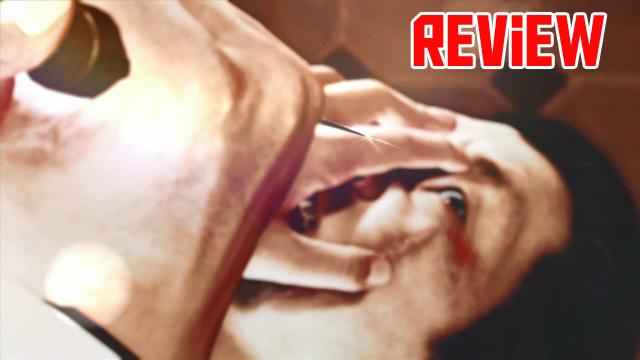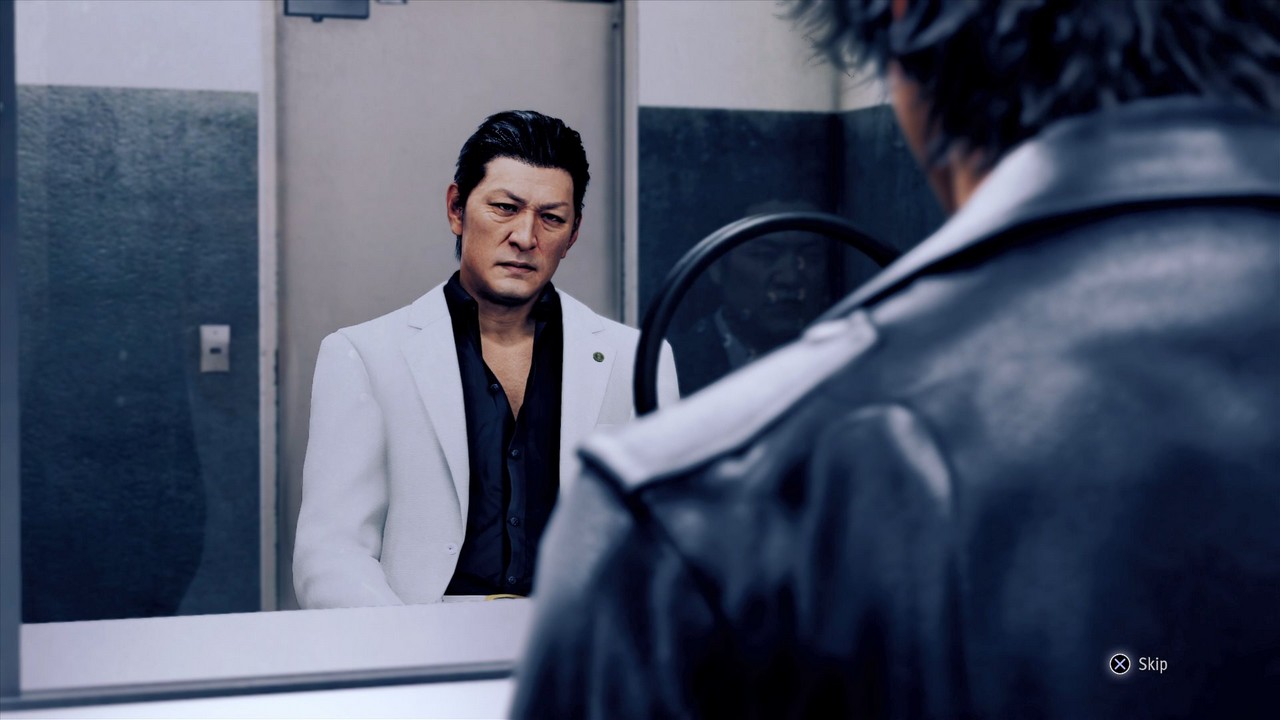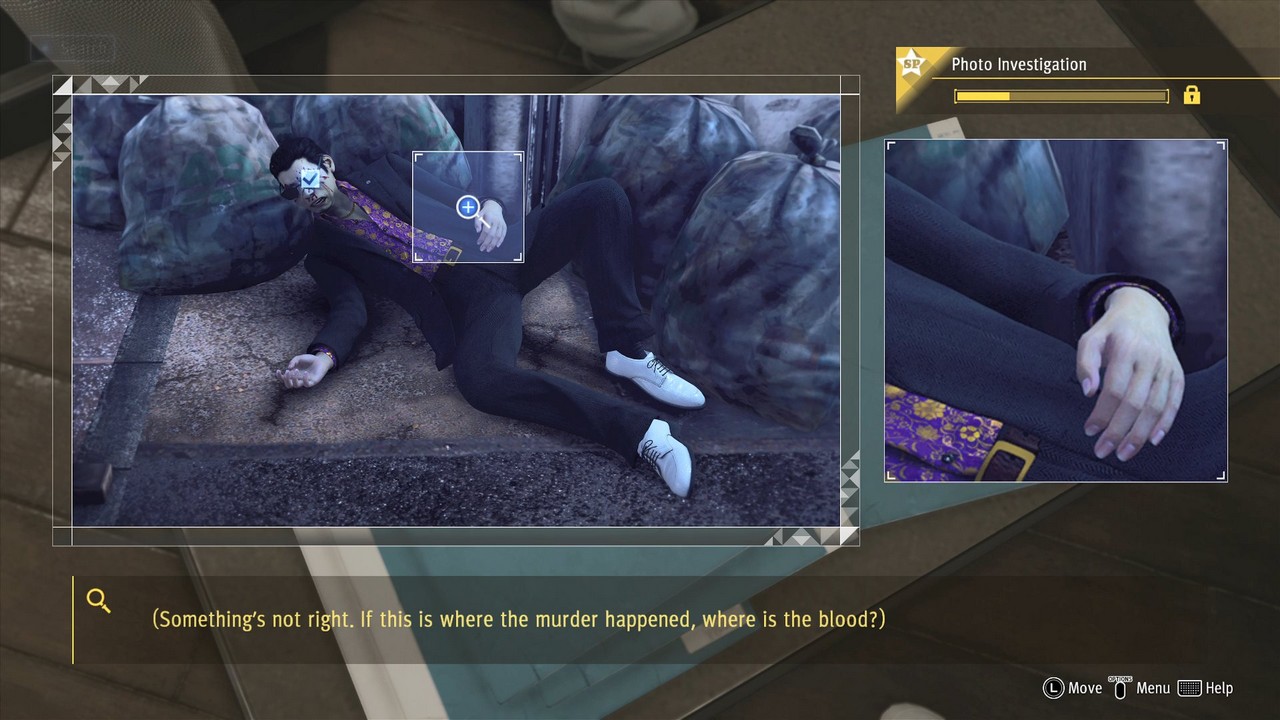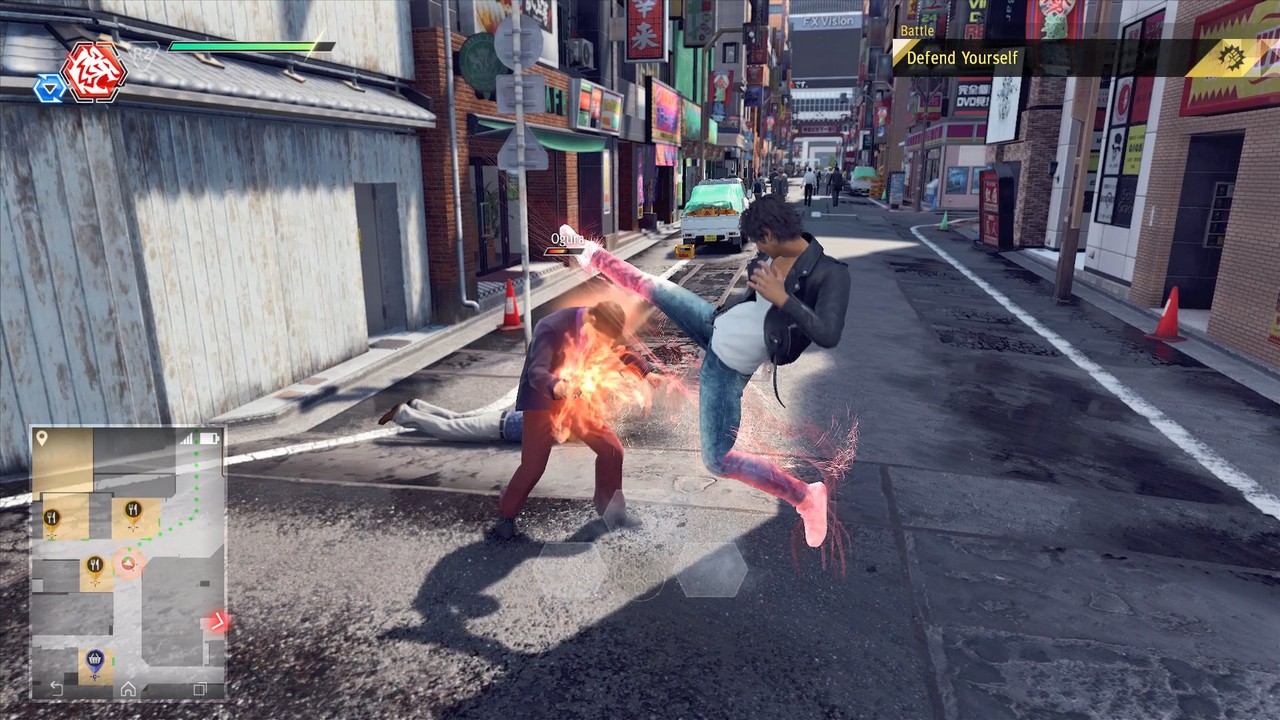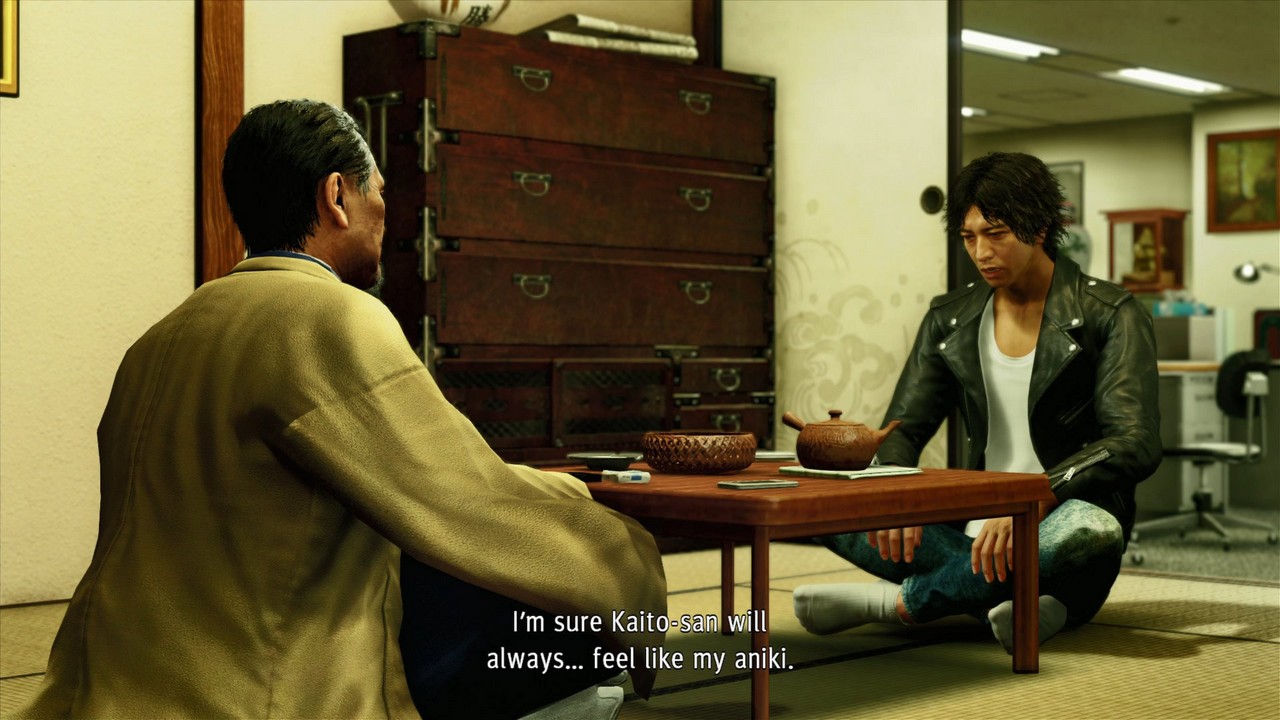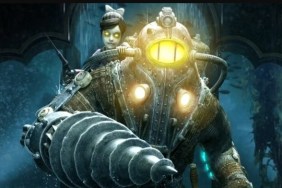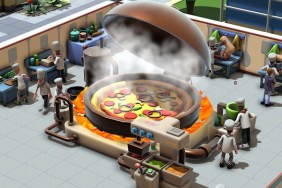Judgment veers away from its Yakuza roots to be the first game in the series set after Kiryu’s story ended in Yakuza 6. This time around you play as Takayuki Yagami; a former lawyer turned private eye who makes his living prowling the seedy underbelly of Kamurocho. Judgment has you trailing a serial killer who has murdered three victims gruesomely by gouging out their eyes, and it will take every bit of Yagami’s knowledge of the law and detective work to see him through.
I’m a huge Yakuza fan, so I was pumped to review Judgement. When Kiryu’s story climaxed in Yakuza 6, I was apprehensive about where the series would go. Fortunately, Kamurocho still stands tall, albeit a little wobbly, even with the Dragon of Dojima gone. The best way to approach Judgment is not to think of it as a Yakuza game at all. Otherwise, you’re going to be always comparing it to the rest of the franchise. Instead, Judgment is very much a side story — one which channels noir and grittiness over the kung-fu zaniness of Kiryu’s adventures.
Judgment Review | Once upon a time in Kamurocho
Our protagonist, Takayuki Yagami, was once a lawyer. Three years before the events of Judgment, he managed to get an accused murderer, Shinpei Okubo, acquitted. Since Japan has such a high conviction rate, this made Yagami somewhat of a celebrity. However, Shinpei was once again accused of murder after police found him exiting the burning apartment where his girlfriend laid stabbed to death. The guilt Yagami felt from freeing Shinpei only to have him murder his girlfriend led him to quit his job as a lawyer.
After he stopped practicing law, Yagami started a detective agency. Because of his ties to the Matsugane Family of the Tojo Clan, Yagami is hired to gather evidence of Matsugane captain Kyohei Hamura’s innocence after he is accused of murdering a rival Yakuza. The rival Yakuza’s death matched the pattern from two other recent murders, but Kyohei says he’s been set up. This case takes Yagami through the underworld of Kamurocho with all the twists and turns you can expect of a great noir plot.
Alongside the main plot, you’ll run into a ton of the side content that the Yakuza series is famous for. Substories are now called side cases, but play out much the same way. The method you get them has changed a little since they now appear on a case board in Yagami’s detective agency, but you’ll still get the same mix of hilarious and poignant stories you’ve come to expect.
In addition to side cases, there are 50 friendships you can make throughout your time in Judgment. These usually aren’t quite as fleshed out as side cases, but can lead to some great scenes and often an item or special fighting move. You’ll find these friends all over Kamurocho, and it’s a lot of fun to really get to know the clerk at Poppo, or the lady working the counter at the burger restaurant as a fleshed out character instead of just an NPC that sells you stuff.
Judgment Review | Investiboring
Where Judgment falters is with some of the new gameplay elements that are supposed to help flesh out the feeling that Yagami is a detective. Where Kiryu and company mostly just wacked the crap out of whatever or whoever was standing in their way, Yagami is portrayed as being more lawful and interrogative.
Since Yagami is a detective, you don’t get to grab whomever you think has answers and beat them in the face until they tell you what you want to know. Instead, there are sections where you need to observe instead of act. Some of these are fun. One of the very early ones gives you the description of a man, and you have to look through a crowd to find someone who fits the bill. It’s kind of like Where’s Waldo, and it’s a fun distraction to complement the regular Yakuza-style gameplay.
However, the investigative elements are mostly just a distraction. Stealth sections, where you have to slowly tail a suspect while keeping your distance, are reminiscent of Grand Theft Auto 3-era stealth missions where you’re just basically trying not to fill up a meter. These parts of Judgment are tedious, and for a game that has so much content, it really didn’t need the filler.
The investigation scenes are also somewhat superfluous. I was hoping to see something more like LA Noire, but it’s really just you looking for the odd things in a still scene. There’s no timer, and there’s no chance of missing a clue, so it feels more like you’re just going through the paces. The same holds true for the interrogation scenes. In these, you’re prompted to ask the “right” answers about a case which will get you the most pertinent answers. However, again, even if you get these wrong, you’ll just lose a small XP bonus.
I would have liked to have seen the investigative elements of Judgment expanded upon more. As it stands, they’re just like the other host of features we’ve seen come and go through the various Yakuza games. They don’t form a core gameplay tenet and end up being more of a distraction than a way to get you into Yagami’s mindset.
Judgment Review | Yagami style
Combat in Judgment is streamlined compared to the last few Yakuza games. You only have to worry about one type of experience, which is used to improve your attack power, health, and unlock special moves. Yagami has two fighting styles available, each of which has its own use. Tiger Style is used for one-on-one fights against bosses, and stronger enemies, and Crane Style is best used for crowd control. It’s easy to swap between the two, and the fighting here is just as satisfying as in Yakuza 6 and Yakuza Kiwami 2, though it is a bit more limited compared the latter game.
Judgment also adds the mortal wounds mechanic, which makes fighting a bit more challenging and encourages a more defensive strategy. Bosses and some fierce later game enemies can hit you with powerful attacks that can inflict you with a mortal wound. This essentially locks part of your health bar and prevents you from recovering fully. This effect persists until you visit a doctor or use a medical kit, and can make fights dicier than usual. Mortal wounds can make even regular grunts more dangerous since if you’re not careful, you can find yourself without access to a good chunk of your total health pool.
The biggest issue with combat in Judgment is that it sometimes affects the pacing negatively. With Kiryu, fighting really tied into the plot. You played as a badass ex-Yakuza whose legendary fighting prowess factored into his factor and the games plots. As Yagami, sometimes it felt like padding as he’s a more cerebral character and it seemed as though he would be the type to think his way around situations.
Judgment, though its a side story, is very much a Yakuza game, so expect to fight a lot during your time through the game. Fortunately, aside from pacing issues, Yagami controls excellently, and battles are just as engaging as they’ve always been.
Judgment Review | A tale of two translations
The Yakuza series is uniquely Japanese. The gokudo lifestyle practiced by the Yakuza is practiced almost exclusively by Japanese natives, and the locations, activities, and plots all feature Japanese culture extensively. Because of this, and the fact that the English voiceovers of the original Yakuza and Yakuza 2 were so poorly received, the series hasn’t received a dub in over a decade.
Since Judgment is seen as a side story, Sega thought it’d be a perfect time to give another dub a shot. I was skeptical, especially since I love Yakuza‘s Japanese voices, but with a whole new cast of characters, I was willing to keep an open mind. I’m glad I did as Ryu ga Gotoku Studio went to the trouble of translating the game twice.
The English dub is the looser of the two. It’s more in the style of the old Evangelion translation by ADV Films. It retains the spirit of the script while taking liberties to adapt it to be more English-friendly. The cast has a solid foundation of veterans like Fred Tatasciore (Kyohei Hamura), while also giving younger actors like Greg Chun (Takayuki Yagami) and Matthew Mercer (Mitsuru Kuroiwa) a chance to play central roles.
The Japanese script is a more literal translation and sticks closer to what Sega did with previous games in the Yakuza franchise. Between the two readings, die-hard fans of the series should be happy, and those who aren’t a fan of subtitles might find Judgment more inviting.
Judgment Review | Is too much Yakuza a bad thing?
I really enjoyed Judgment, but strangely it was the parts of it that weren’t straight out of Yakuza that made it stand out for me. The gritty, noir plot is absolutely amazing and might be some of the best writing in the series yet. Sometimes though, it seems like the Yakuza trappings get in the way of what makes Judgment unique.
When I interviewed Kazuki Hosokawa, the producer on Judgment, he was adamant about Judgment not being a Yakuza game. Even though it’s set in the Yakuza universe, it does its own thing. This philosophy kind of seems at odds with Judgment as a whole since it contains so much of Yakuza‘s DNA. Because of this, the new additions that come with it, namely the investigative gameplay, aren’t fleshed out in a way that makes them anything other than narrative devices. I’d have loved if investigating crime scenes or questioning suspects and witnesses was more dynamic since it would make the reveals pay off that much more.
Judgment is still an excellent game, despite some of the issues I have. Unfortunately, this is a title that is somewhat held back by its lustrous pedigree, but it has one of the best stories in the franchise, and there’s still a ton of things it has going in its favor.
-
Plot is one of the strongest of the franchise.
-
A ton of side content.
-
A great new cast that expands the Yakuza universe.
-
Investigative and chase sections can feel tedious.
-
Combat sometimes gets in the way of the plot.
